Pre-writing skills Alphabet Worksheets for Ages 5-7
5 filtered results
-
From - To
Enhance your child's pre-writing skills with our engaging Alphabet Worksheets designed specifically for ages 5-7. These activities foster essential motor skills that lay the foundation for writing success. Exploring letters through tracing, coloring, and connecting dots makes learning fun and interactive. Our worksheets not only help young learners master letter shapes but also encourage creativity and visual recognition. Perfect for classrooms or at-home practice, these worksheets provide a comprehensive resource to ensure your child gains confidence in their writing abilities. Prepare them for a successful learning journey with our thoughtfully crafted pre-writing exercises that inspire curiosity and a love for learning!
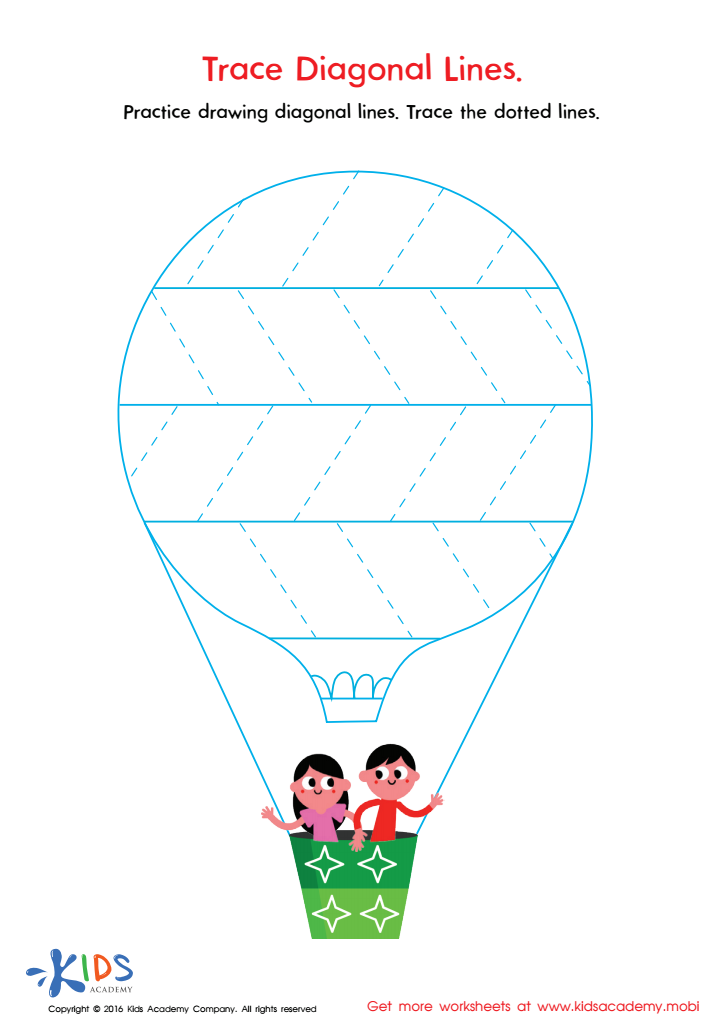

Trace Diagonal Lines Worksheet
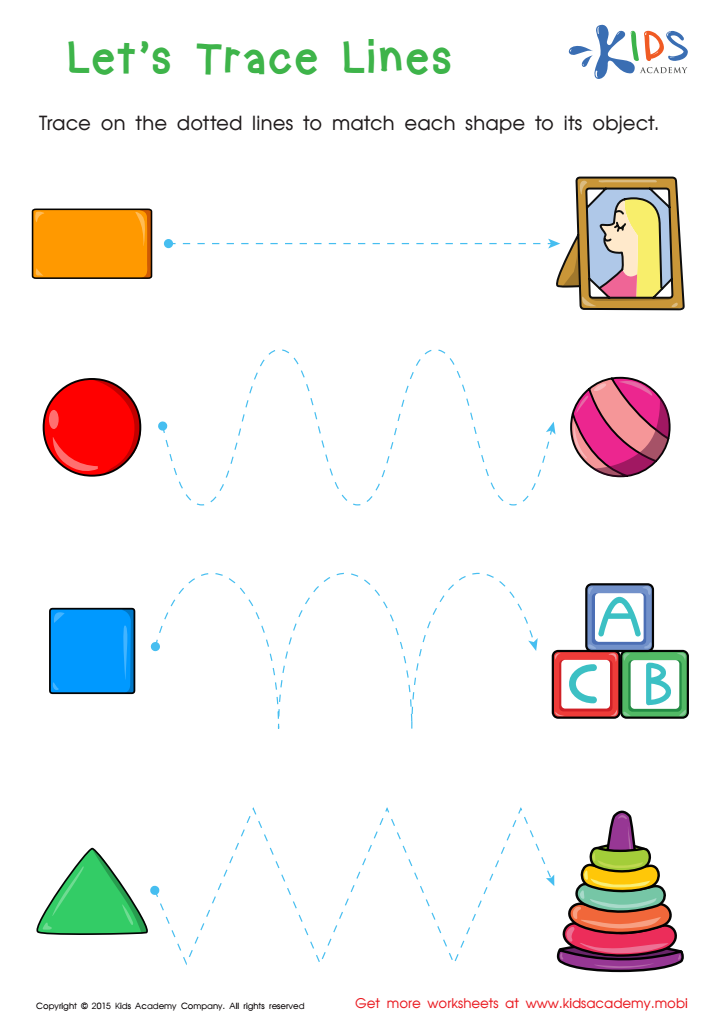

First Words: Let's Trace Lines Worksheet
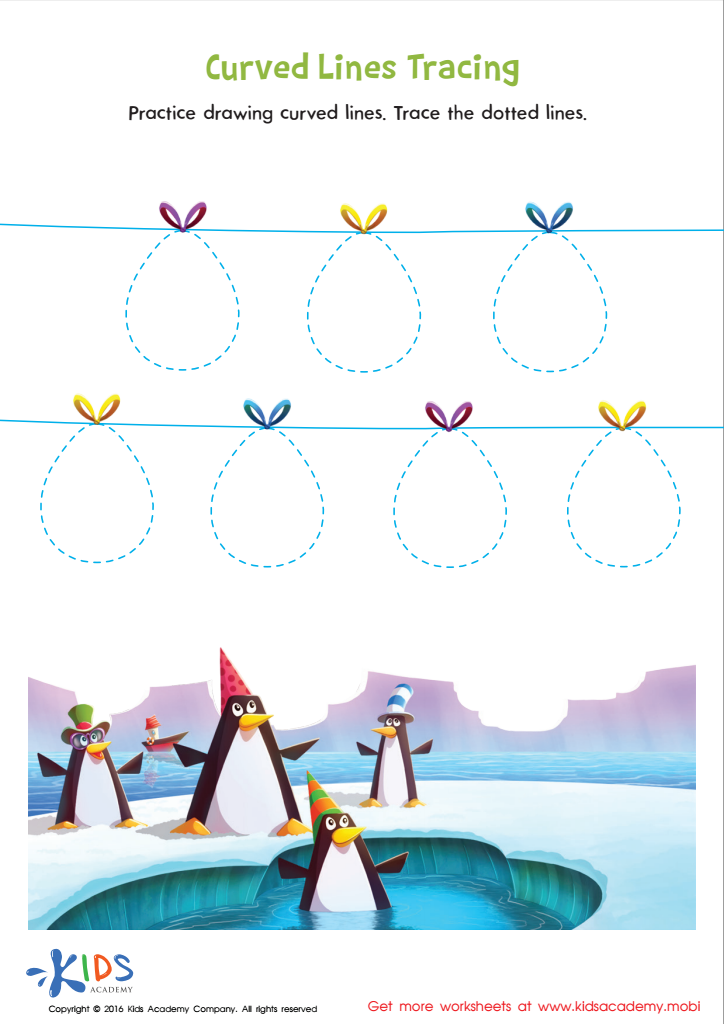

Curved Lines Tracing Worksheet
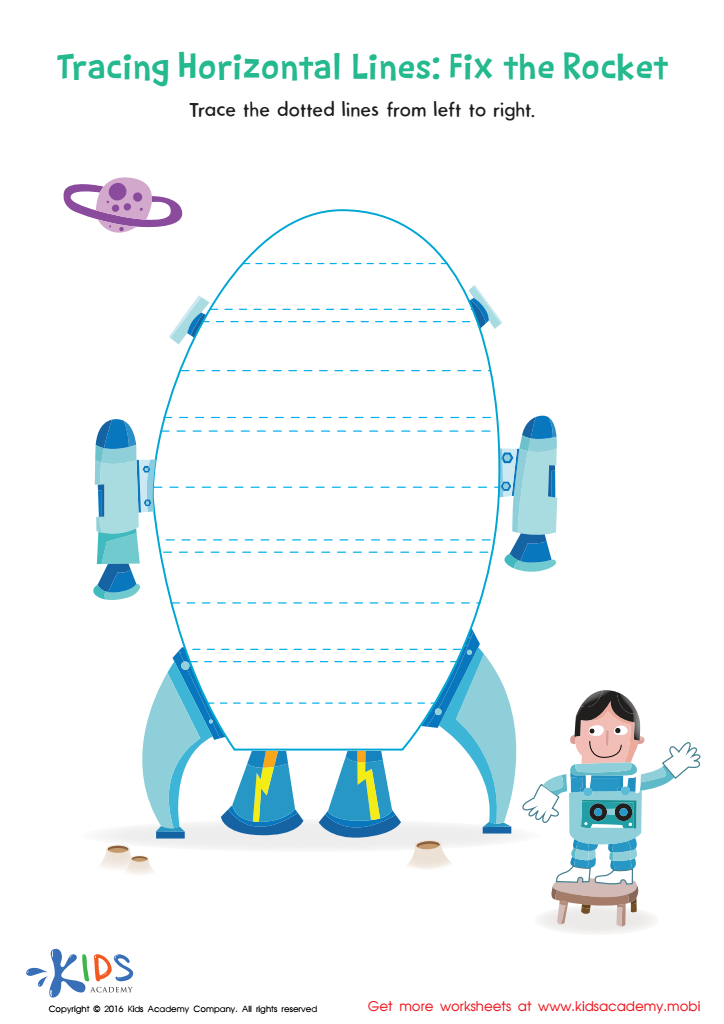

Tracing Horizontal Lines Worksheet
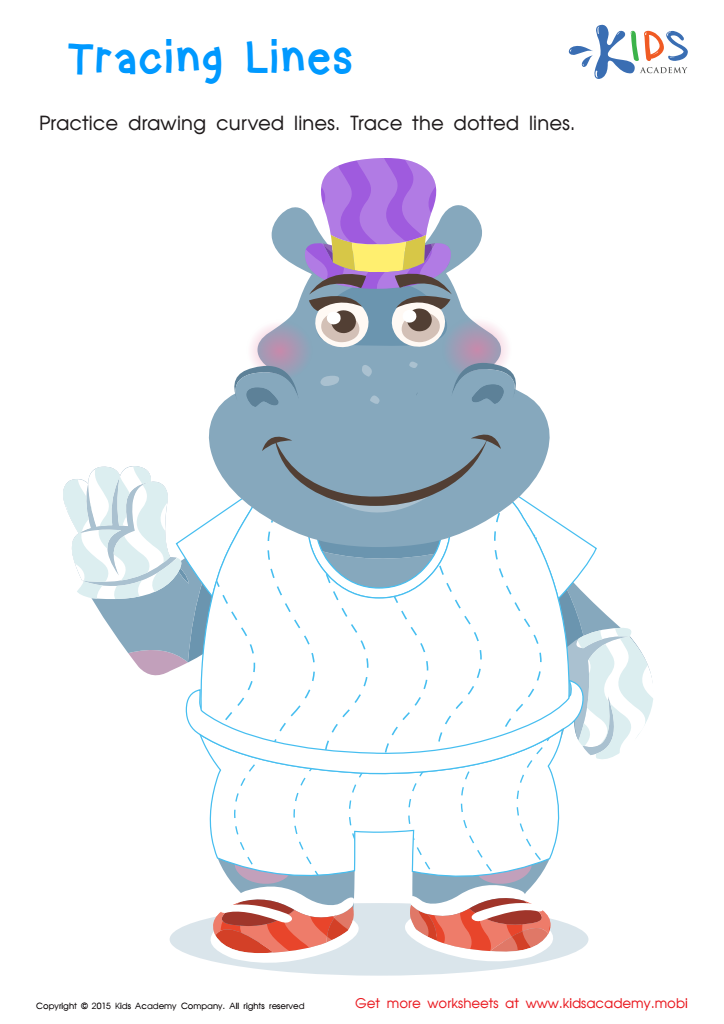

Tracing Lines Worksheet
Pre-writing skills are crucial for children aged 5-7 as they form the foundation for a variety of future learning experiences, particularly in literacy and communication. At this age, children are beginning to understand the alphabet and develop their writing abilities. By focusing on pre-writing skills, parents and teachers can help enhance a child's fine motor skills, hand-eye coordination, and spatial awareness, which are essential for effective writing.
Encouraging proficiency in pre-writing encourages confidence and a positive attitude towards learning too; children who feel adept at forming letters are more likely to engage in writing activities voluntarily. Learning the alphabet during this developmental stage offers a structured introduction to letters, shapes, and sounds, reinforcing phonemic awareness essential for reading.
Additionally, pre-writing activities can foster creativity and critical thinking. Parents and teachers who promote these skills can create a rich, nurturing environment, serving to engage children in various modes of expression beyond merely letters – such as art, drawing, and storytelling.
By nurturing pre-writing skills, adults can significantly impact a child's educational journey, allowing them to become confident communicators and enthusiastic learners. This focus serves as a building block for lifelong literacy and cognitive development, essential both in school and beyond.

 Assign to My Students
Assign to My Students




















